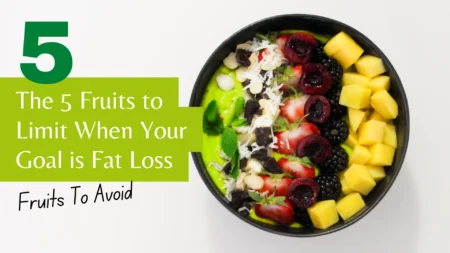Chayote squash (Sechium edule), a member of the gourd family (Cucurbitaceae), has its origins in central Mexico and various parts of Latin America. Today, it is cultivated worldwide and is known by various names, including mirliton squash and chocho. This versatile fruit, often treated as a vegetable in culinary contexts, is celebrated for its impressive nutritional profile and potential health benefits.
Nutritional Profile of Chayote Squash
A single chayote squash (approximately 203 grams) provides:
- Calories: 39
- Carbohydrates: 9 grams
- Protein: 2 grams
- Fat: 0 grams
- Fiber: 4 grams (14% of the Reference Daily Intake, RDI)
- Vitamin C: 26% of the RDI
- Folate (Vitamin B9): 47% of the RDI
- Vitamin K: 10% of the RDI
- Vitamin B6: 8% of the RDI
- Manganese: 19% of the RDI
- Copper: 12% of the RDI
- Zinc: 10% of the RDI
- Potassium: 7% of the RDI
- Magnesium: 6% of the RDI
Notably, chayote is particularly high in folate, which is essential for proper cell division. Additionally, it is low in calories, fat, sodium, and total carbohydrates, making it a healthy addition to various diets.
Antioxidant Properties
Chayote squash is rich in antioxidants, compounds that protect cells from damage, reduce inflammation, and lower oxidative stress. Key antioxidants found in chayote include:
- Quercetin
- Myricetin
- Morin
- Kaempferol
Among these, myricetin is present in significant amounts and has demonstrated strong anticancer, antidiabetic, and anti-inflammatory properties. Furthermore, chayote is an excellent source of vitamin C, a potent antioxidant that supports overall health.
Cardiovascular Health Benefits
Consuming chayote squash may positively influence heart health by addressing several risk factors:
- Blood Pressure Regulation: Compounds in chayote have been shown to help relax blood vessels, improving blood flow and reducing blood pressure.
- Cholesterol Management: Myricetin, a prominent antioxidant in chayote, has been observed to lower cholesterol levels in animal studies.
- Fiber Content: With about 14% of the RDI for fiber, chayote contributes to heart health, as higher fiber intake is associated with a reduced risk of heart disease.
Blood Sugar Control
Chayote's low carbohydrate and high soluble fiber content may aid in regulating blood sugar levels. Soluble fiber slows digestion and carbohydrate absorption, leading to a more gradual blood sugar response after meals. Additionally, unique plant compounds in chayote may enhance insulin sensitivity by inhibiting enzymes linked to poor blood sugar control and type 2 diabetes.
Support for a Healthy Pregnancy
Folate is crucial during early pregnancy for the proper development of the fetal brain and spinal cord. Adequate folate intake may also help prevent preterm births. Chayote is an excellent source of folate, providing over 40% of the RDI per squash, making it a valuable food for those who are pregnant or planning to become pregnant.
Potential Anticancer Properties
Higher consumption of fruits and vegetables is linked to a reduced risk of various cancers, including those of the digestive tract. Test-tube studies have indicated that certain compounds in chayote may slow the growth and progression of cancer cells, such as those in cervical cancer and leukemia. While these findings are promising, more research is needed to confirm these effects in humans.
Anti-Aging Effects
The aging process is partly attributed to free radicals that damage cells over time. Antioxidants in chayote, including vitamin C, may help slow aging by protecting cells from free radical damage. Vitamin C is also necessary for collagen production, a protein that gives skin its firm, youthful appearance. Additionally, chayote extract has shown protective effects on human skin cells against UV radiation in test-tube studies.
Liver Health
Fatty liver disease involves the accumulation of excess fat in liver tissue, impairing its function. Both test-tube and animal studies suggest that chayote squash extract may reduce fat accumulation in the liver, potentially preventing or treating fatty liver disease. More research is needed to understand these effects in humans fully.
Weight Management
Chayote squash is low in calories but high in fiber—attributes that support healthy weight management. The fiber content promotes a feeling of fullness, which can decrease overall food intake. Research also suggests that dietary fiber may increase fullness hormones like GLP-1 and peptide YY, aiding in weight loss efforts.
Digestive Health
A healthy digestive tract is essential for detoxification, immunity, and nutrient absorption. Chayote is rich in flavonoids, plant compounds that support digestion by aiding enzymes involved in waste removal. The fiber in chayote also promotes healthy gut bacteria and bowel regularity, potentially preventing chronic conditions such as heart disease, type 2 diabetes, and colon cancer.
Culinary Versatility
Chayote's mild flavor and firm texture make it a versatile ingredient in various dishes. Every part of the squash is edible, including the skin, flesh, and seeds. It can be consumed raw in smoothies, slaws, and salads or cooked by steaming, roasting, or frying. Chayote also makes a nutritious addition to soups, stews, and casseroles.
Conclusion
Chayote squash is a nutrient-dense food offering numerous health benefits, from supporting heart health and blood sugar control to promoting healthy skin and digestion. Its versatility in the kitchen makes it easy to incorporate into a balanced diet, providing both culinary enjoyment and nutritional advantages.
Recommended Diagram: Nutrient Composition of Chayote Squash
To visually represent the nutrient breakdown of chayote squash, the following pie chart illustrates the distribution of key nutrients per 203-gram serving:
| Nutrient | Amount per 100g | % Daily Value (DV) |
|---|---|---|
| Carbohydrates | 4.51 g | 2% |
| Protein | 0.82 g | 2% |
| Fiber | 1.7 g | 6% |
| Vitamin C | 7.7 mg | 9% |
| Folate | 93 µg | 23% |
| Vitamin K | 4.1 µg | 5% |
| Vitamin B6 | 0.13 mg | 8% |
| Manganese | 0.189 mg | 8% |
| Copper | 0.12 mg | 13% |
| Zinc | 0.74 mg | 7% |
| Potassium | 125 mg | 3% |
| Magnesium | 16 mg | 4% |
Note: The % Daily Value (% DV) indicates how much a nutrient in a serving of food contributes to a daily diet. The values are based on a 2,000-calorie daily intake.
Note: Values are based on a single chayote squash weighing approximately 203 grams.
Incorporating chayote squash into your diet can be a delightful way to enhance your nutritional intake and support overall health.
The information provided in this article is for general informational purposes only and is not intended as a substitute for professional medical advice, diagnosis, or treatment. Always seek the advice of your physician or other qualified health provider with any questions you may have regarding a medical condition. Never disregard professional medical advice or delay in seeking it because of something you have read in this article.
Lamartine is an experienced researcher who creates evidence-based content about health, wellness, supplements, and lifestyle. He offers objective analysis and honest reviews to help readers make informed and safe decisions—without exaggeration, without bias.





